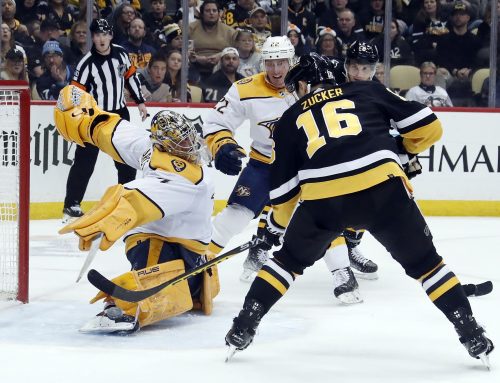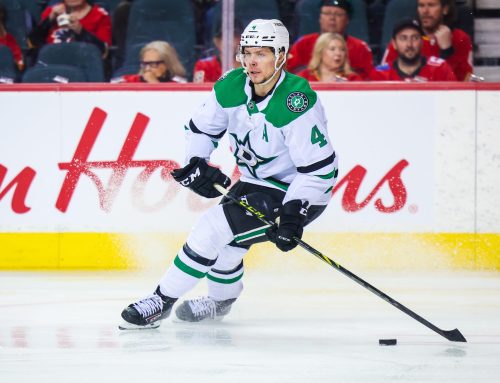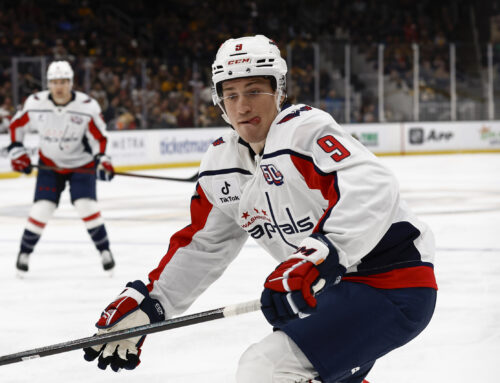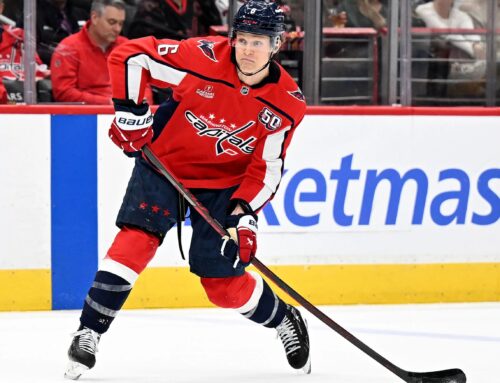Usually this article would be summarizing all of the puzzling signings made on July 1st, and applauding the teams that either made one shrewd signing, or generally opted out of the bidding wars. Alas, we just have the news of what the salary cap is likely to look like for the future bidding wars, whenever that may come. There is a lot to unpack with it though, so I will try to cover all of the relevant angles.
****
What the stagnant cap means for your league:
The obvious answer is that a flat cap means tighter salaries for NHL teams, which will trickle out to your league in various ways depending on how the league is set up. If your cap is tied to the NHL cap, then the cap crunch from this season won't get any easier, though your free agents be signing for less than expected. Your league mates may actually be looking to stock up on some RFAs/UFAs in order to take advantage of what will likely include a few smaller and shorter-term contracts so that the NHL can manage the cap.
If your salary cap is not tied to the NHL cap, then you may have to be ready to adjust it for the season depending on your usual regulations. I'm happy to provide some input to league commissioners if you are looking for suggestions on how to handles the changes. As much as possible, things should just move forward within your normal rules, and the league will adapt to some slightly modified circumstances. Any changes at this point should be made with league votes, as sudden changes to league rules are always a slippery slope.
Generally, after a small increase last summer, most fantasy teams were likely prepared in case the coming bump was another small one, and leagues have generally gotten into a groove with how everything runs in an offseason with only small salary cap changes. Ask around and see how other leagues are managing things. People are always happy to brag about how great their fantasy hockey league setup is, and that's why we have communities like the forums.
The bottom line for your league should be to not overthink things.
****
What the stagnant cap means for your team:
This means that there are a few different things to look at over the summer, and avenues to explore to take advantage of the situation. The main three would be:
1) Finding some UFA bargains before they sign.
2) Taking a bigger contract off of a cap-crunched team
3) Setting yourself up for the next few seasons as well.
Point 1 is pretty straightforward. The big guns in free agency will likely still get their money, but the guys like Anthony Duclair, Robin Lehner, and Ryan Strome that were looking to cash in as UFAs this summer may end up havingto take another short-term deal. The bargains won't be found with Taylor Hall, Alex Pietrangelo, or Torey Krug – the top end players will still have multiple suitors and those teams will move money wherever they have to in order to fit a star player in. Once those star players have signed the middle-tier and depth players leftover won't have much of the pie left to split, and there will likely be a lot of league minimum contracts sorted out. In the same vein, there may be a lot of veteran players that just aren't re-signed, and NHL depth will be filled out with the top NHL-ready players on entry level deals that would have otherwise played the full season in the AHL.
For point 2, it seems like an obvious idea to bring forward, but there are many ways around this. It isn't just the top team or the one with the most cap issues that will want to shed salary every team in the league should be looking around and saying that all of my bad contracts can get dumped because I can get a better player at a below-market cost from a contending team. Now there is a balance to strike here between getting an asset and helping the other team out of a jam. Patience will be your friend in the longest fantasy offseason since the 2012 lockout.
For point 3, there is a bit more of a long-term look at things. The cap is going to be stagnant for as long as it takes the NHL revenue to hit $4.8 billion, which will likely be a couple of seasons (especially with the losses due to Covid restricting NHL arenas putting butts in seats). However, the contracts signed by the Auston Matthews and Sergei Bobrovsky's that were supposed to be a bit of an overpayment at the start but be a fair cost over the next few years suddenly start to look a little iffy. Be aware that the cap won't be increasing, and buy in on some stable and fair contracts such as Kyle Connor, Ivan Provorov, and Nicolaj Ehlers.
On a completely unrelated note, man is Winnipeg ever set up well if they could sort out their defencemen.
****
What the stagnant cap means for the NHL
After a lot of sifting through different numbers and scenarios, for the NHL the biggest impacts are:
1) Teams that will be facing a cap crunch and will have to trade talent
2) A different look to free-agency and though we say it every year a chance at some RFA offer-sheets
3) Even more parity – except for Colorado.
Let's take these one at a time. Point 1 means that teams such as Tampa Bay will have to move out at least three of their mid-tier forwards if they want to keep their stars together as well as re-signing their RFAs to fair deals (discussed in more detail here). A lot of teams are going to need to move out some money, and there may be a few more fringe players bought out. Teams like St. Louis, Washington and Boston may also struggle to keep their teams together, so it's looking ever more likely that Alex Pietrangelo, Braden Holtby, and Torey Krug may hit the open market.
Point 2 is going to be very interesting to watch unfold, as some teams will obviously try to get ahead of the change, while others will lag behind. The teams that can clear cap space early while signing their players to longer and manageable deals will come out ahead of the other teams that are slower to make adjustments. Going back to Tampa Bay, other teams could swoop in and offer two or three RFA deals to Anthony Cirelli, Mikhail Sergachyev, and Erik Cernak for more than what Tampa could realistically afford. The Lightning could match one or two, but they may not be able to keep all three. On the flip side, I'm not sure what the pick compensation would be if a team was to make an offersheet to multiple RFAs at the same time in the same summer. For the fun of it though, just imagine. Adding those three players for nothing but draft picks would surely speed up a rebuild in Ottawa or LA. But the most fun one to dream about is Colorado.
That brings us to point three, league parity and the Colorado Avalanche. On one hand, there are thirty NHL teams where the top teams are mostly all under some form of cap crunch or internal budget, while the bottom teams have enough cap space to make a move, but not enough to make a huge difference in the standings. This would in turn mean that the parity of the league should be even more balanced next season with the cap teams trading a decent player to the non-cap-strapped teams for pennies on the dollar. On the other hand, we have Colorado, who is both a top-tier-team, and nowhere near the cap ceiling. The Avalanche won't have room to poach all three RFAs from Tampa, however they could conceivably fit two, and that is a scary thought when one of the cup contenders from this year is likely to be even better next year in spite of circumstances limiting most other competing teams. Anyone know if we can place bets yet on the 2021 Stanley Cup champion?
****
If you have any article topics you would like something written on, give me a shout! You can find me on Twitter @alexdmaclean for questions, comments, or article requests.
And stay safe!
****
Previous Capped articles:





 SEA
SEA CHI
CHI OTT
OTT EDM
EDM DAL
DAL STL
STL ANA
ANA FLA
FLA CBJ
CBJ L.A
L.A VGK
VGK
